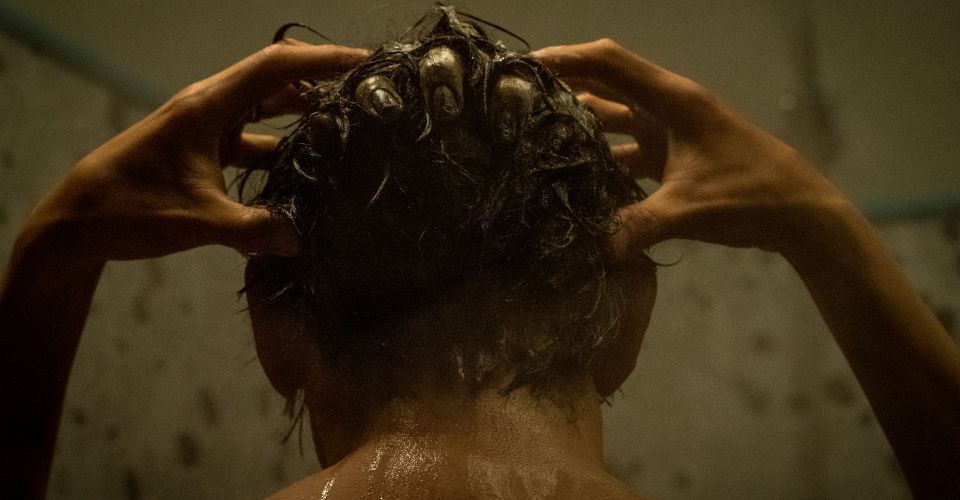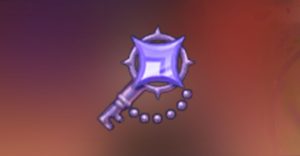The Grudge 2020 Ending Explained

WARNING! Major spoilers for The Grudge follow.
Nicolas Pesce’s The Grudge brought an investigative spin to the Japanese horror franchise through a detective side-plot that was inspired by Seven. Running concurrently to 2004’s first American remake of The Grudge, the film explored the boundaries of the curse and how it can travel not only internationally, but from person to person, and potentially explores a grudge that cannot be overcome.
Released on January 3, 2020, The Grudge was bolstered by a talented cast and producer Sam Raimi, of The Evil Dead franchise fame. However, despite all the star-studded, ambitious hopes of the film, it has received largely negative reviews from critics and audiences alike. Many have said that The Grudge wasn’t ever in need of the reboot treatment, and when one was achieved, it failed to add anything new to the genre or the Ju-On franchise that was created by Takashi Shimizu in 1998.
While the ending of the film didn’t convey a massive cliffhanger, as some supernatural horror films do, it did leave greater questions that lingered after the credits rolled over an eerie scene of Detective Muldoon’s home after she suffered what audiences could only presume was a grisly fate.
The Grudge 2020: What Will Happen To The Curse?

What was absolutely proven by The Grudge 2020 was that the curse, which originated in Tokyo, endures. Beyond that, it travels, and isn’t limited to one set space. After Fiona Landers (Tara Westwood) leaves Tokyo to return home to her family in Cross River, the curse – which has presumably attached to her during her tenure living inside the cursed house as a caregiver – follows her and transfers to her family. Soon after arriving home, Fiona murders her husband, drowns her young daughter in the bathtub, then brutally stabs herself to death in the stairwell.
The murder of the Landers family sets off a chain of events that eventually leads to Detective Muldoon’s (Andrea Riseborough) entrance into the home, where she ends up inheriting the curse. In a last ditch effort to shake what nobody else has seemed able to, Muldoon attempts to burn the Landers house to the ground, hopeful that this will be enough to defeat the curse and rid herself of it once and for all. While she succeeds in burning the house down, the final sequence shows her returning home to her son, Burke, and getting him ready for school. She embraces the boy in a goodbye sendoff, but realizes that it’s not her son she’s hugging, and ends up being dragged down the hallway – presumably to her death – by the spirit, which is still attached to her.
This implies that the curse isn’t so much attached to a place – at least, not beyond the original house in Tokyo – as much as it is inherited by the people who encounter the source and transfer it through a domino effect style of reactionary events. Since Muldoon proved that destroying one location cannot rid someone of the curse once they’ve been affected, it stands to reason that nothing can truly destroy the curse.
What Happened To Muldoon’s Son After The Ending?

After Muldoon’s death, the fate of her son is left up in the air. Since Muldoon lost her husband – and Burke’s father – four months prior to these events, to cancer, her death would result in him being an orphan. However, there are aspects of the film that suggest Burke might endure a much darker fate, as the curse doesn’t discriminate in victimology. Similarly to how Peter Spencer (John Cho) was spared by the spirits inside the haunted house during his time inside there only to come home and murder his pregnant wife (Betty Gilpin) – who was never directly exposed to the curse – in their kitchen, it’s possible that Muldoon murdered her own son when he came home from school that same day. Muldoon also saw spirits outside of her home and the Reyburn Drive home, where the primary hauntings occur; it traveled with her to her office at the police department.
If Muldoon was killed outright, perhaps Burke did escape the pull of Kayako and the other restless spirits who have become part of The Grudge, but since he was inside the house after his mother was already exposed, it’s possible that he started seeing things as well. Muldoon barely spent any time inside the house, and yet she was affected, so the curse has a short turnaround time, and it takes very little exposure to be doomed.
Can The Grudge’s Curse Ever Be Destroyed?

The franchise’s creator, Takashi Shimizu, says that he and his creative team discussed ways to defeat the curse when they were creating sequels to the original film, but couldn’t come up with anything that made sense, so they decided that, perhaps, nothing can defeat it after all. Most supernatural possession and paranormal activity films usually have some kind of conclusion or methodology crafted to defeat the evil, as is seen with films in The Conjuring universe, among others. Part of what makes Asian supernatural horror so intriguing is that there is frequently no resolution. Pesce has said, in interviews, that the curse in his movie is transferred similarly to a virus. In The Grudge 2020, the only person who seems to be safe is Detective Goodman, who refused to enter the house because he had a bad feeling, which he later chalks up to his deceased mother’s lifelong belief in spirits.
The Real Meaning Of The Grudge’s Ending

The franchise’s lore is based on the Japanese spirit known as an onryō, which is a spirit who possesses a powerful, malevolent energy after dying in a deep rage. Usually, onryō are created through brutal, violent deaths and remain behind to tie up the loose ends surrounding their demise and get revenge, but end up taking others who come into contact down in the process, and are undiscerning regarding who they hurt. The main theme behind The Grudge and the franchise on the whole is trauma, and how when caught up in it, it can consume a person and affect everyone they touch. Just as the curse is passed from person-to-person, unchecked trauma can be an illness all its own, and can ruin families, the people who suffer from it, and can also cause shockwaves of hurt that travel much further than the person affected may even realize until it’s too late.
- The Grudge (2020)Release date: Jan 03, 2020
About The Author


















